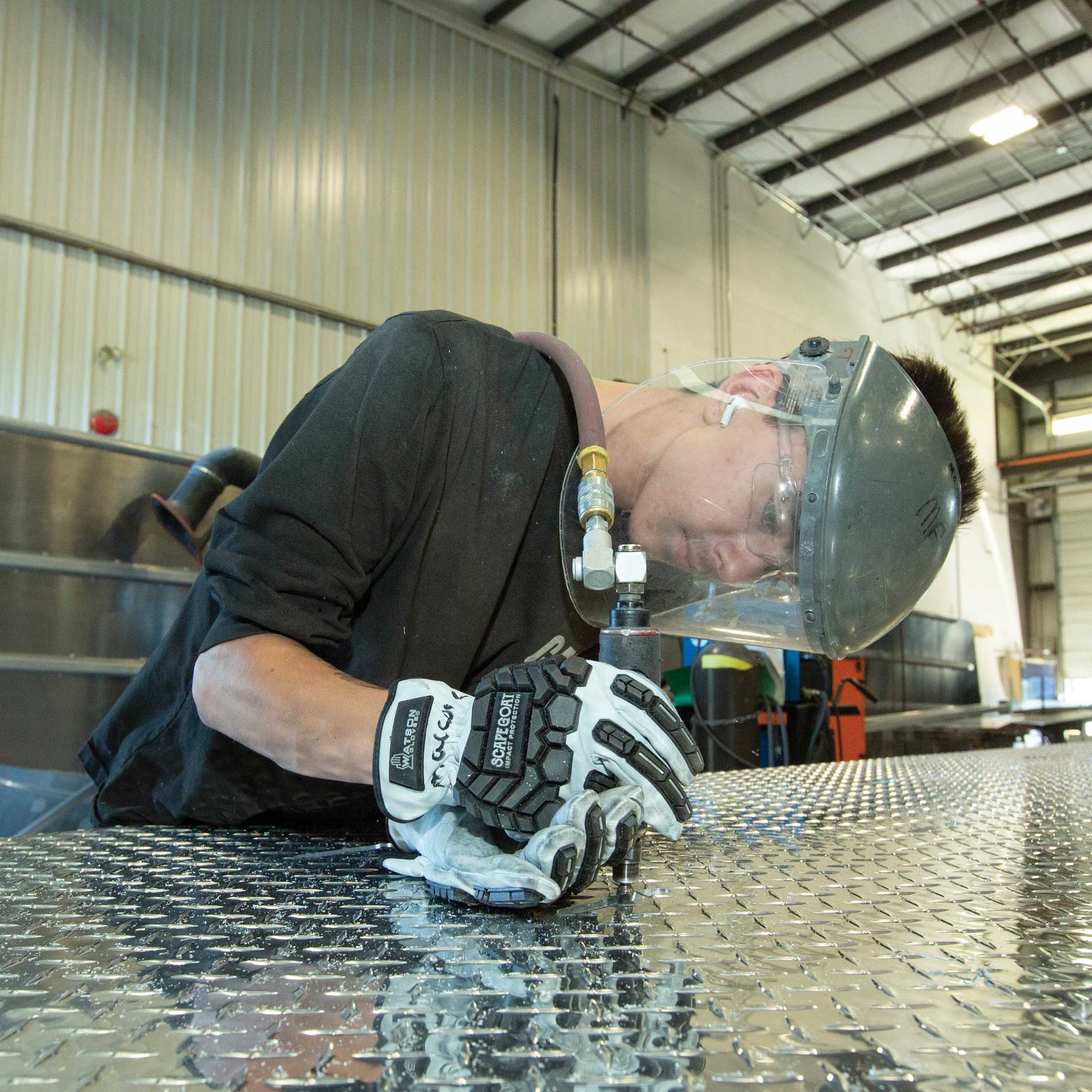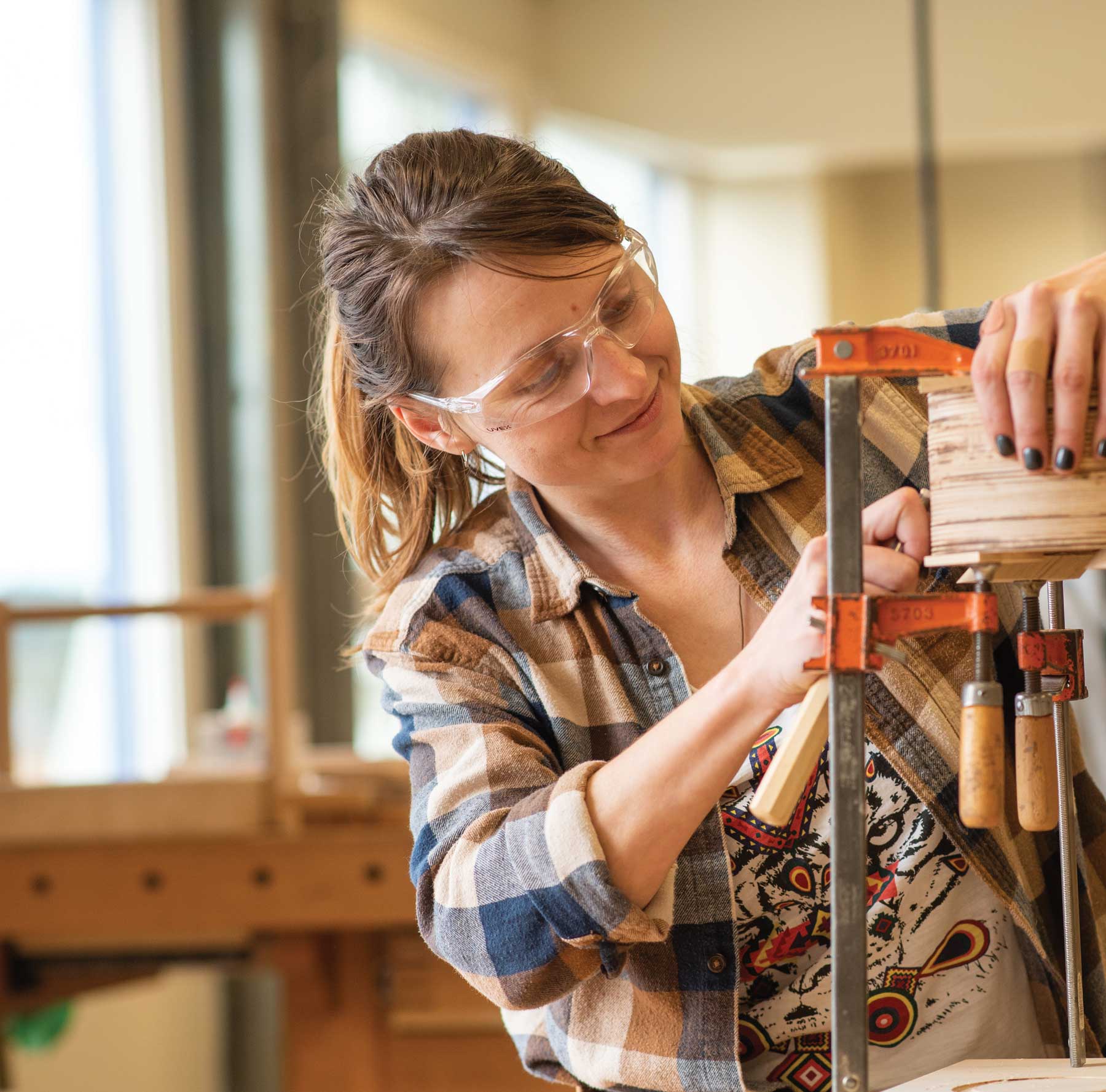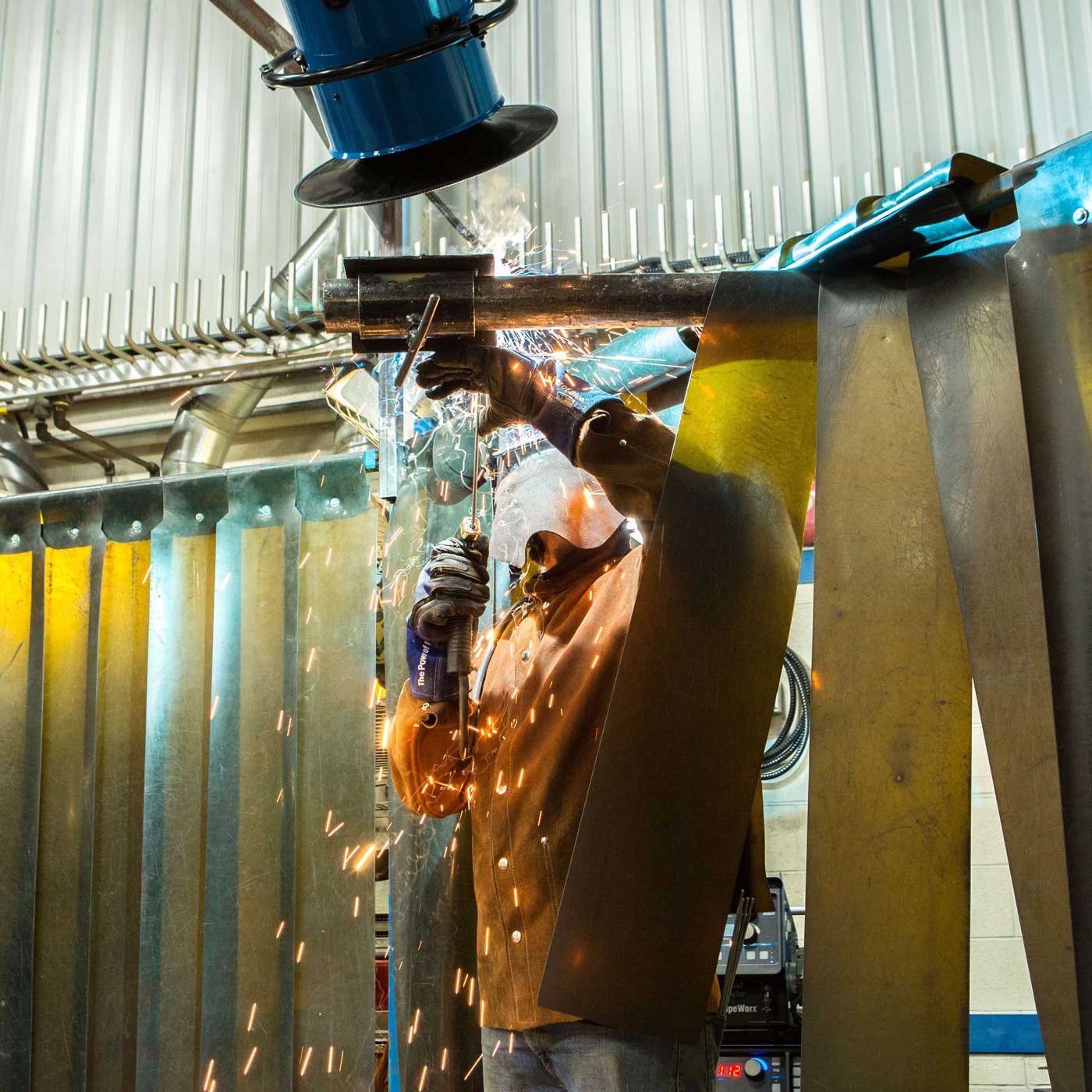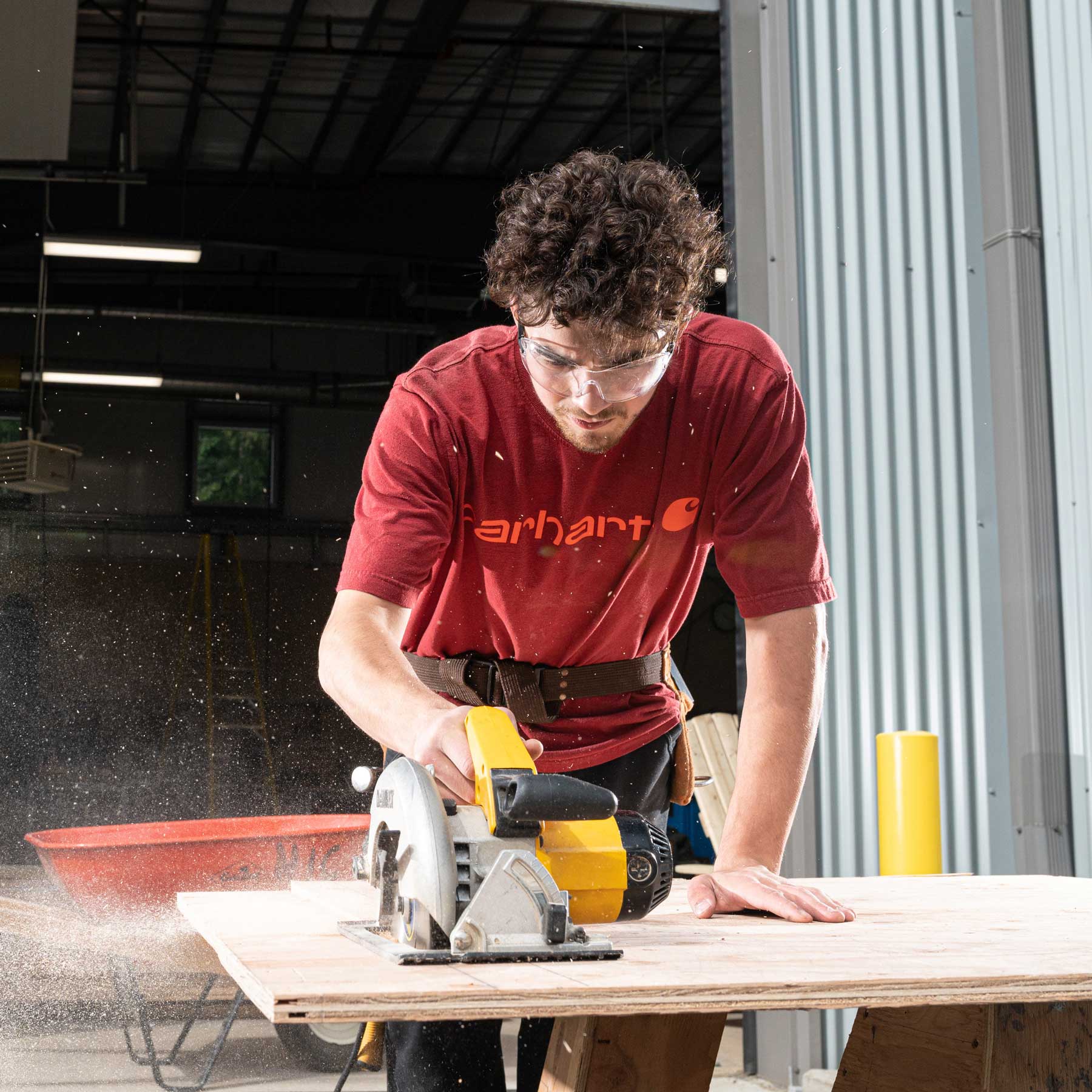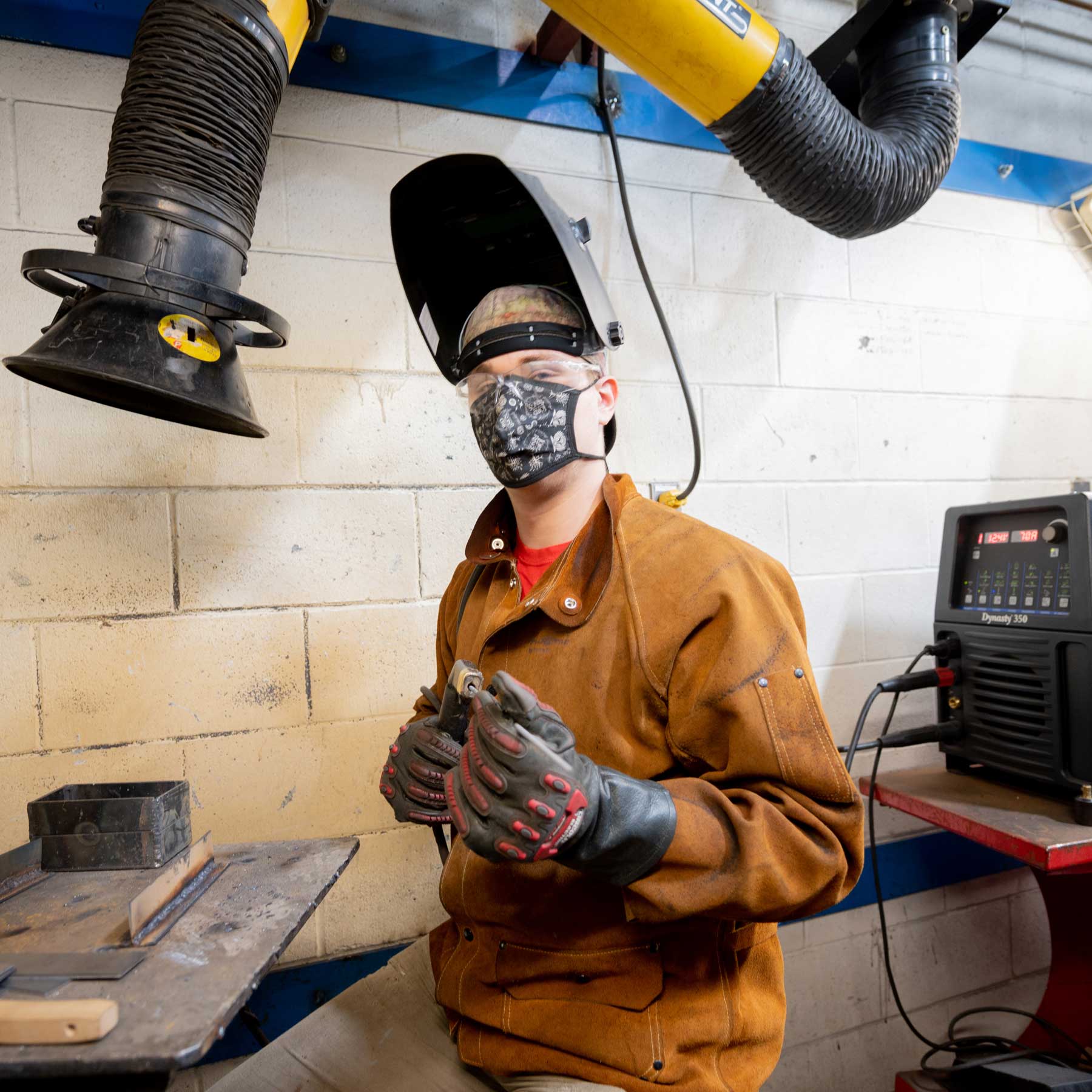Plumbing and Piping Trades Foundation Harmonized Certificate
| Certificate | |
| Priority admission for Indigenous students | |
| Domestic applicants only |
Start your trades career with foundation training to be a plumber, steamfitter, pipefitter or sprinkler fitter. Earn your Level 1 technical training credit and work hours for your Interprovincial Red Seal certification when you register as an apprentice.
This is an academic credit program offered through the Faculty of Trades and Technology.Stay connected
Get program updates and event news straight to your inbox.
Applications open. |
Overview
This program mixes hands-on training in NIC’s trades shop with classroom and lab learning. You'll graduate with a strong base in both practical skills and theory.
You'll learn:
- Workplace safety.
- Piping tools and equipment.
- Applied math and science for the piping trades.
- Job-site documentation.
You'll graduate with:
- A recognized college credential.
- Level 1 technical trades training credit.
- 375 work-based hours toward your Interprovincial Red Seal certification.
- Workplace Hazardous Materials Information System (WHMIS).
- Occupational First Aid Level 1 certification.
Foundation vs. apprenticeship
There are two pathways to your red seal certification.
Foundation
A certificate program that gives you the basic knowledge and skills to enter a trade. You don't need an employer/sponsor.
Apprenticeship
This pathway combines on-the-job training with classroom learning. Pick this option if you're working and sponsored by a company registered with SkilledTradesBC.
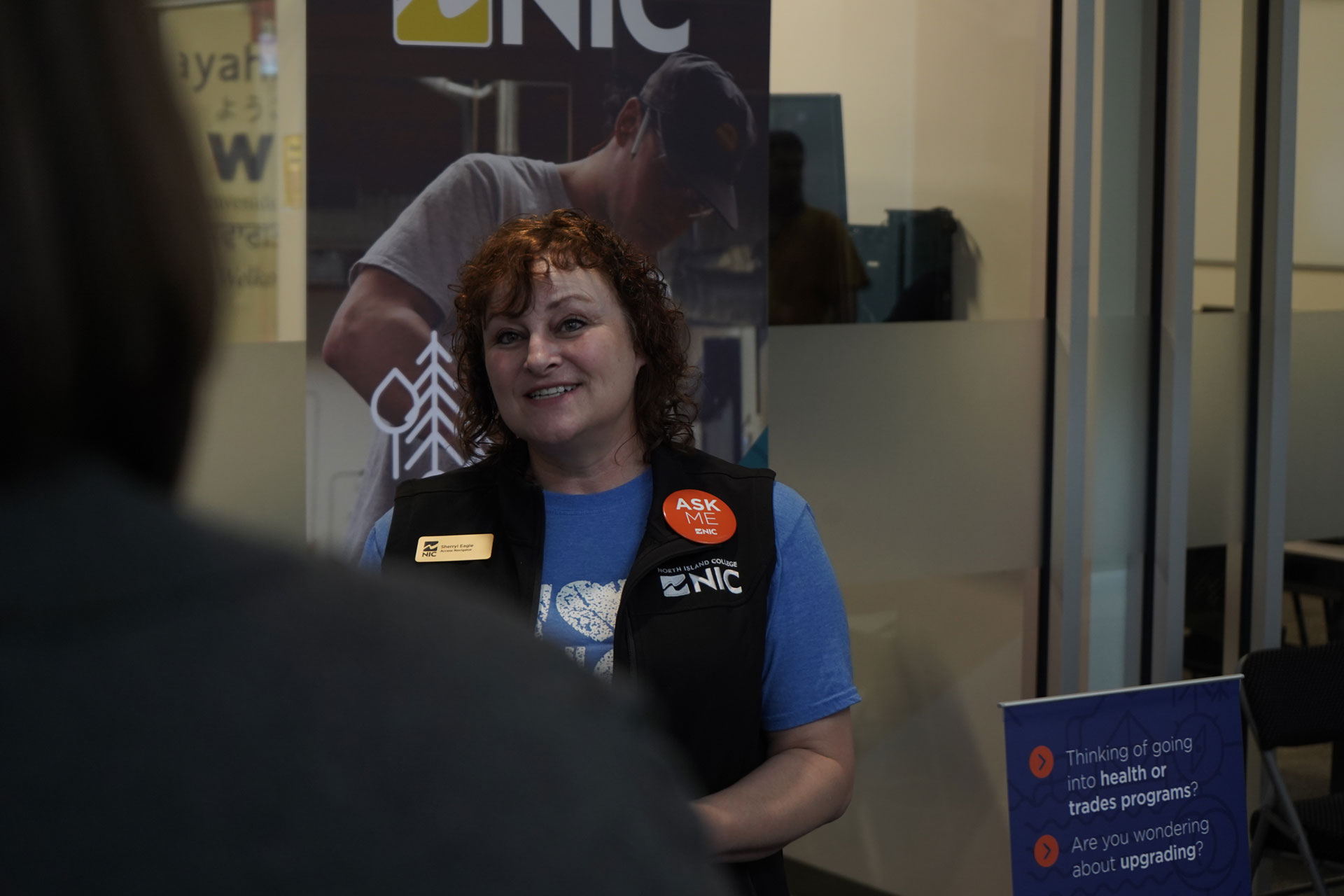
Upgrade into a health or trades career
Are you missing prerequisites? Not a problem — our access navigators can guide you to a new career.
Get in touchSupplies
Students are responsible for having the following basic supplies:
Personal Protection Equipment
- Steel-toed boots or shoes
- Safety Glasses - CSA-approved
- Gloves
- Coveralls
- Work wear
- Hard hat
Classroom Supplies
- Tape measure (25-foot imperial and eight-metre metric)
- Metric conversion calculator, EL520-WBBK or EL-520X recommended
- Pencils, hi-liter, binder and notepaper
Drafting equipment (available at the NIC bookstore):
- Set square - 30/60/90 degree, Staedtler 964 10-60
- Scale ruler, Imperial, Architects, Staedtler 987 18-31
- Scale ruler, Metric, Staedtler 987 18-SI
- Drawing compass, 559-02
- Good quality white eraser
- Mechanical pencils: .3mm in 6H lead; .5mm in 2H and 4H lead; .9mm in 2H lead
In addition, NIC is pleased to make shop tools available to students in exchange for a $200 refundable tool deposit, which is not included in your tuition. It will be returned at the end of the term if all tools and tags are returned in an acceptable condition. Tools will not be distributed without proof of payment from the Registration office.
Careers
After this program you'll be ready enter the trade. Continue with the apprenticeship pathway to work towards your Red Seal certification as Plumber, Sprinkler Fitter or Pipe Fitter.
Costs
Check the table below for estimated costs for the full program.
Financial support is available. Learn more about financial aid and awards.Curious about funding?
How to apply
Apply for this program through EducationPlannerBC. After you’ve applied, you’ll receive an email from NIC with your next steps. Be sure to add @nic.bc.ca to your safe sender list.
Questions? We’re with you along the way. To contact a recruiter, email futurestudents@nic.bc.ca.
Your path to Red Seal Certification
Frequently asked questions
Trades training prepares students for hands-on careers in skilled trades such as construction, mechanics, electrical work, plumbing, culinary and more. Programs combine classroom learning with practical, industry-specific skills.
NIC’s trades programs include:
- Automotive Collision and Refinishing Foundation
- Automotive Service Technician Foundation
- Carpentry Foundation
- Electrician Foundation
- Fabricator-Welder Foundation
- Furniture and Joinery
- Heavy Mechanical Trades Foundation
- Instrumentation and Electrical Automation
- Motor Sport and Power Equipment (motorcycle) Foundation
- Plumbing and Piping trades Foundation
- Parts and Warehousing Foundation
- Trades Sampler
- Welder Foundation
Typically, NIC offers:
- Pre-apprenticeship (Foundation) programs: Level 1 Foundation training to prepare for entry-level positions.
- Apprenticeship programs: A combination of on-the-job training and classroom instruction, Level 1-4.
- Specialized certifications: Training in specific skills or safety standards, such as welding or forklift operation.
The duration depends on the type of program, but generally are:
- Pre-apprenticeship programs: Level 1 training is about 24-36 weeks.
- Apprenticeship levels: Typically 5 to 17 weeks in-class training per level, with multiple levels required for certification. There are usually 4 levels required to complete before writing the Red Seal certification exams.
- Certifications: Often a few weeks to a few months.
- To find an employer willing to sponsor you as an apprentice.
- To register with your province’s apprenticeship authority.
- To attend required technical training at a college.
NIC can help with these steps, reach out to the Trades department at trades-technicalprograms@nic.bc.ca
Yes, trades students may qualify for:
- Government grants or tax credits.
- Apprenticeship incentives for both students and employers.
- Scholarships or bursaries specific to trades programs.
NIC can give you information around funding and scholarships, reach out to the Trades department at trades-technicalprograms@nic.bc.ca
Absolutely! Colleges and industries actively encourage diversity in trades and often offer supports, mentorship programs, and funding for women and underrepresented groups.
NIC has funding available, reach out to the Trades department at trades-technicalprograms@nic.bc.ca
